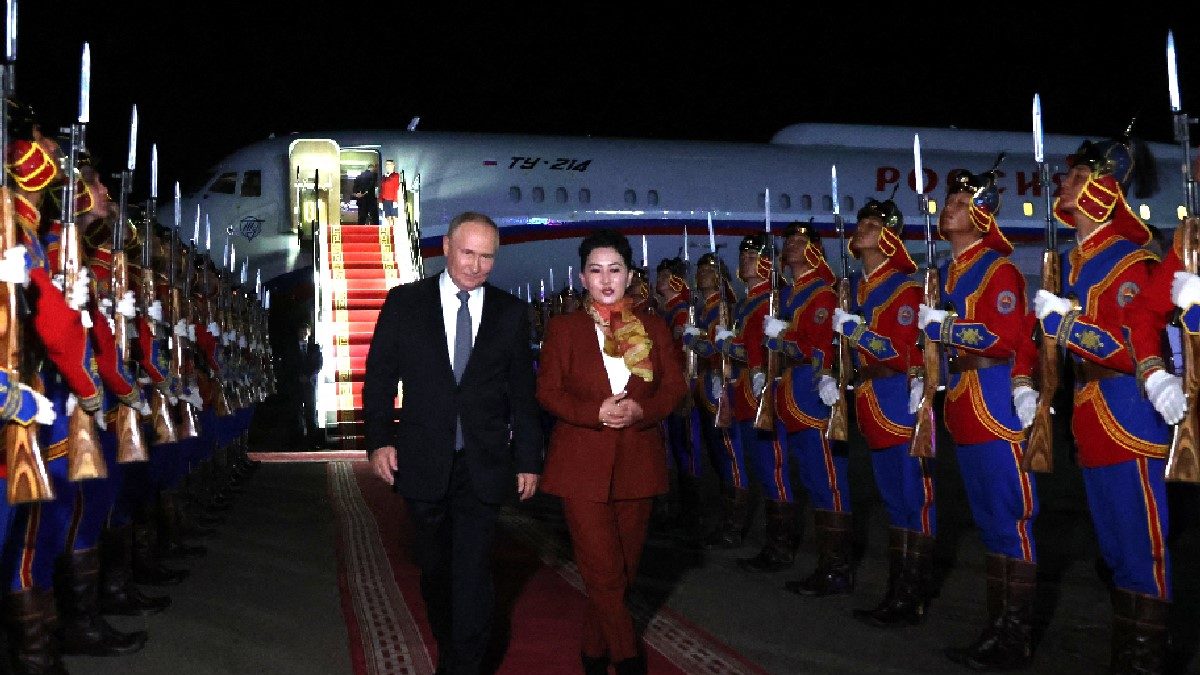Vladimir Putin’s visit to Mongolia, a member of the International Criminal Court (ICC), has raised concerns about the court’s ability to enforce its warrants and holds implications for the rule of law and international justice.
Putin’s Defiant Trip
Putin’s visit to Mongolia comes amidst the ICC issuing an arrest warrant for him in March 2023, accusing him of war crimes for the alleged illegal deportation of Ukrainian children. This trip is viewed as a display of defiance against the ICC, Kyiv, and the West, who have all called for Putin’s arrest. Despite the ICC’s calls for cooperation from its members, Mongolia, a country historically close to Russia, has not condemned Russia’s invasion of Ukraine and has abstained from UN votes on the conflict.
Mongolia’s Balancing Act
Sandwiched between Russia and China, Mongolia has navigated a delicate diplomatic balance since the collapse of the Soviet Union. While maintaining friendly relations with both Russia and China, Mongolia has refrained from criticizing Russia’s actions in Ukraine. This position raises questions about the country’s commitment to international law and its willingness to uphold the ICC’s mandate.
Concerns for Justice and International Law
The international community has expressed serious concerns about Mongolia’s failure to arrest Putin, arguing that it sends a dangerous message about impunity for powerful individuals. Critics, including Amnesty International and Human Rights Watch, emphasize that Putin’s presence in Mongolia, an ICC member state, undermines the court’s credibility and weakens the principle of accountability.
ICC’s Mandate Under Scrutiny
The arrest warrant for Putin has reignited discussions about the ICC’s effectiveness and its ability to hold powerful leaders accountable for international crimes. Mongolia’s decision not to detain Putin despite the warrant highlights the challenges the court faces in enforcing its rulings in countries that are politically or economically aligned with those being targeted.
The Case of Netanyahu and the ICC’s Legitimacy
The ICC’s legitimacy has also come under scrutiny following the issuance of an arrest warrant for Israeli Prime Minister Benjamin Netanyahu. Mongolia was among 93 countries that signed a letter in June expressing their unwavering support for the ICC, calling on all members to ensure full cooperation with the court. This move indicates a push for a stronger international stance on enforcing the ICC’s mandates.
The Future of International Justice
The current situation with Putin’s visit to Mongolia emphasizes the need for stronger mechanisms to ensure the accountability of powerful individuals for international crimes. It raises questions about the effectiveness of international law and the ability of institutions like the ICC to hold even those in positions of authority accountable for their actions.
Take Away Points
- Putin’s trip to Mongolia is a show of defiance against the ICC, Kyiv, and the West, demonstrating the limitations of the court’s reach and enforcement power.
- Mongolia’s inaction on the arrest warrant highlights the challenges the ICC faces in upholding its mandates, particularly in cases involving powerful individuals.
- This situation underscores the importance of a collective commitment from all ICC members to ensure the court’s effectiveness and maintain the principle of accountability.
- The future of international justice hinges on finding effective ways to ensure that even powerful individuals face consequences for their actions when they violate international laws and norms.









